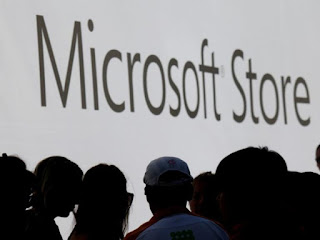Business: Windows 10 application developers can claim 95% of revenue earned on the Microsoft Store, with some restrictions and conditions however.
Microsoft has announced a new revenue sharing agreement on the Microsoft Store. The publisher offers developers a greater share of revenue from application sales. Provided Microsoft did not contribute to winning a new customer.
Beginning this year, mainstream app developers will earn 95% of both app sales and in-app purchases when the user completes the purchase through a deep link, such as a link from the company's website. developer or social networks.
85% if Microsoft contributes to the sale
However, if Microsoft helps gain a customer through a collection of applications or other means, the developer will benefit from 85% of revenue generated through the Microsoft Store.
Microsoft offers developers a significantly higher revenue share than the Google Play Store and Apple's App Store, which charge a 30% commission on sales. However, Google and Apple give 85% of revenue to developers if consumers subscribe to an app for more than a year.
The tidbit of Microsoft could help it to close the gap in applications available on the Microsoft Store by financially encouraging developers to wear Android or iOS applications on Windows 10, but also to distribute applications via its shop.
Games and Xbox One excluded
"With the new fee schedule, Microsoft only has access to additional fees when we contribute to the acquisition of a new user," writes the publisher in a blog post.
The new commission grid applies to purchases made on Windows 10 computers, Windows Reality Mixed, Windows Phone and Surface Hub.
However, the generosity of Microsoft does not include games and sales via Xbox consoles. A logical position given the importance of this category for Microsoft. New pricing does not apply to Microsoft Store for Business or Microsoft Store for Education either.
Microsoft plans to detail the revenue sharing agreement in a new developer app agreement that will be released later this year.
This commercial move comes as Microsoft continues to pull out of mainstream markets, but continues to offer iOS and Android features to enhance the mobile experience for Windows 10 users, such as Microsoft Launcher Android, Edge for iOS and Android, and the new Timeline feature of the April 2018 update of its OS.
